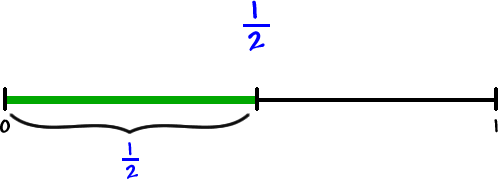Let's try it:

No! Duuuuuude!
How can this be?!
You mean to tell me that

But, that's an infinite number of numbers! This is madness! My head hurts.
OK, settle down... Let me convince you that this is possible.
Look at this:
![]()
Let's add it on a big number line:
![]()
Let's add one term at a time...
